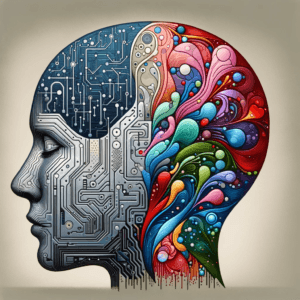3-Step Coursework Method: Self-master the emerging skills for the future job market
Apr 22, 2024
In an era where change is the only constant, the ability to adapt through learning is more than a skill; it's a necessity. The modern job market, an ever-evolving landscape, demands not just proficiency, but a continuous evolution of skills. Self-learning, once a supplementary approach, has now become a primary vehicle for professional development. Self-learning strategies for career advancement play a pivotal role in this. However, mastering this art involves more than just determination; it requires a strategic method.
This article delves into the 'Coursework Method,' a structured self-learning approach tailored for those aspiring to stay ahead in their careers. Unlike typical discussions that often gloss over the nuances of self-directed learning, we explore insights often overlooked: the psychological barriers to learning, the underestimated power of structured schedules, and the transformative impact of goal-setting. Our journey through this method is not just about acquiring skills; it's about reshaping our approach to learning in a world where the only limit to one's growth is the boundaries they sets for themselves.

The Evolution of Job Skills
The job market today isn't just about what you know; it's about how quickly you can learn and adapt. The velocity of change in technology and global markets has rendered some traditional skills obsolete, while simultaneously catapulting new ones to the forefront. Yet, what's often missed in mainstream discussions is the increasing value of 'soft' skills, like adaptability, critical thinking, and emotional intelligence. These skills bridge the gap between technical proficiency and real-world effectiveness. Emerging skills development Techniques are therefore not just about learning new technologies but also about developing these critical interpersonal skills.
Emerging Skills for the Future
Looking ahead, the future job market is poised to value a blend of technical and human-centric skills. While much attention is given to the rise of AI, data science, and digital marketing, there's a parallel increase in demand for creative problem-solving, ethical decision-making, and intercultural competence. These emerging skills highlight a crucial insight: the future job market isn't just about understanding machines or algorithms; it's equally about understanding people and the complex tapestry of our global society. In this context, navigating self-education in a changing job Market is not just a route to acquire new skills; it's a journey to become more versatile, empathetic, and resilient.

The Self-Learning Paradigm
In an age where information is at our fingertips, the self-learning paradigm has emerged as a powerful tool for personal and professional growth. As described in the article “What Is Self-Learning? (With Benefits and Practical Tips)” on Indeed, self-learning empowers individuals to take control of their educational journey, adapting the pace and style to their unique needs and circumstances.
Benefits of Self-Learning
Self-guided learning tactics for skill building become crucial in this paradigm, extending beyond mere knowledge acquisition; it's an exercise in self-empowerment. This method offers unprecedented control over one's learning experience, facilitating a highly individualized approach. It's not just about what you learn, but how you learn it, fostering critical soft skills like time management and problem-solving. These skills are often overlooked in traditional education systems but are vital in the modern workforce.
Challenges in Self-Learning
However, self-learning isn't without its challenges. It demands a high degree of self-motivation and discipline, traits that are not innate to everyone. One lesser-discussed aspect is the emotional journey of self-learning. It can be a solitary path, filled with moments of doubt and frustration. Overcoming these emotional hurdles is as much a part of the learning process as the acquisition of knowledge itself. The key lies in recognizing these challenges as opportunities for growth, transforming them into intrinsic motivators that propel us forward.
In embracing self-learning, we're not just acquiring new skills; we're also learning about ourselves – our strengths, weaknesses, and limitless potential. This introspective journey is what truly sets self-learning apart and makes it a transformative experience.

The Coursework Method for Self-Learning
The Coursework Method for self-learning mirrors the structure of a formal course, but it's uniquely tailored by you, for you. This method turns the daunting task of learning something new into a manageable, process-oriented journey, emphasizing progress over perfection.
Defining Your Curriculum:
Identify a Weakness: Start by pinpointing a specific skill or area you want to improve.
Set a Goal: Define what success looks like for you in this area.
Break Down into Chapters: Divide your goal into smaller, achievable chapters.
Structuring Your Learning:
Assign Learning Resources: Curate books, online courses, articles, etc., relevant to each chapter.
Schedule Time Slots: Dedicate specific times for learning to ensure consistency.
Task Assignments: Create tasks for each chapter that emphasize doing overachieving.
Progress and Adaptation:
Set Out KPIs: Define Key Performance Indicators to track your progress weekly.
Measure Work Done Weekly: Focus on what you've created or accomplished, not just what you've learned.
Reward the Action: Implement a reward system for completing tasks to boost motivation.
Example: Learning Video Editing
Week 1 Task: Edit reel videos for 30 minutes per day. This task is process-oriented, focusing on the act of editing rather than producing a set number of videos.
Progress Tracking: At the end of the week, assess how much more comfortable you've become with the editing software, not just how many videos you've edited.
Reward: Treat yourself to something enjoyable after a week of consistent practice.
This method is particularly effective for skills like learning new software, content creation, habit building, or even writing a book. By focusing on improvement and consistent action, it dismantles the barrier of perfectionism that often prevents us from starting. It's a method that champions progress, understanding that in the realm of self-learning, there is no failure, only growth.
Overcoming Common Obstacles
Embarking on a self-learning journey using the coursework method is an empowering step, but it's not without its challenges. Addressing these common obstacles head-on can significantly enhance the learning experience.
Staying Motivated:
Creating a Support Network: Often overlooked, the power of a support network in maintaining motivation cannot be overstated. Engage with peers, mentors, or online communities. Sharing your progress and struggles can provide a sense of accountability and encouragement.
Visual Progress Tracking: Use visual tools like progress bars or checklists. Seeing your progress visually can be a powerful motivator and provides a tangible sense of achievement.
Dealing with Information Overload:
Focused Learning: In an age of information overload, the ability to focus on what's essential is a rare skill. Prioritize quality over quantity in your learning materials. It’s better to deeply understand fewer resources than to skim through a multitude.
Balancing Learning with Other Responsibilities:
Integration, Not Isolation: Integrate your learning goals into your daily life. For instance, if you’re learning a new language, practice by changing the language settings on your phone or watching shows in that language.
Fear of Failure:
Reframing Failure as Feedback: One of the least discussed but most effective strategies is to reframe failure as feedback. Each mistake is an opportunity to learn and grow, not a sign of defeat.
Incremental Challenges: Set small, incremental challenges that gradually increase in difficulty. This approach reduces the fear associated with big tasks and helps build confidence through small successes.
Overcoming these obstacles is about changing both your mindset and your strategies. Remember, the path to mastery is as much about navigating these challenges as it is about the actual learning.

Case Studies: Success Stories
In this section, we delve into real-life success stories that showcase the effectiveness of the coursework method in self-learning. These narratives not only inspire but also provide practical insights into how this method can be applied across various fields.
Emma's Journey in Digital Marketing:
Emma, a 30-year-old marketing professional, decided to enhance her skills in digital marketing. She structured her learning into a 12-week course, focusing on different aspects of digital marketing each week. She used online resources, participated in forums, and set weekly practical tasks. Her progress was remarkable, not only in acquiring new skills but also in applying them in her current job, leading to a significant promotion.
Alex's Exploration in Photography:
Alex, a 22-year-old college student, had a passion for photography but struggled with technical aspects. He divided his learning into small, manageable tasks, focusing on different photography techniques each week. Through consistent practice and community engagement, Alex overcame his initial challenges and even hosted a small photography exhibit, turning his hobby into a potential career path.
Maria's Mastery of a New Language:
Maria, 35, aimed to learn Spanish to enhance her career opportunities. She structured her learning like a language course, with weekly goals, regular practice sessions, and interaction with native speakers online. Her dedication led to not only fluency but also a job opportunity in a bilingual role, showcasing the power of self-directed learning in career advancement.
These case studies exemplify that with the right approach, the coursework method can lead to significant personal and professional growth. They emphasize that the journey of learning is as important as the destination, showcasing that continuous improvement and application of skills are key to success.
Conclusion
In conclusion, the coursework method offers a transformative approach to self-learning, especially pertinent in today's dynamic job market. This method goes beyond traditional learning paradigms by emphasizing the importance of structured self-discovery, adaptable goals, and the integration of learning into daily life. It challenges the conventional view of learning as a finite journey, instead presenting it as a continuous, evolving process.
The real power of this method lies in its ability to make learners adaptable, resilient, and equipped to tackle future challenges that the job market may present. By focusing on process over results, it alleviates the pressure of perfectionism, a barrier often overlooked in traditional learning discussions.
As we've seen through various success stories, the coursework method isn't just about acquiring new skills; it's about embracing a mindset of lifelong learning and continuous growth. In an ever-changing world, this approach doesn't just prepare us for the next step in our careers; it prepares us for a lifetime of opportunities and challenges.




